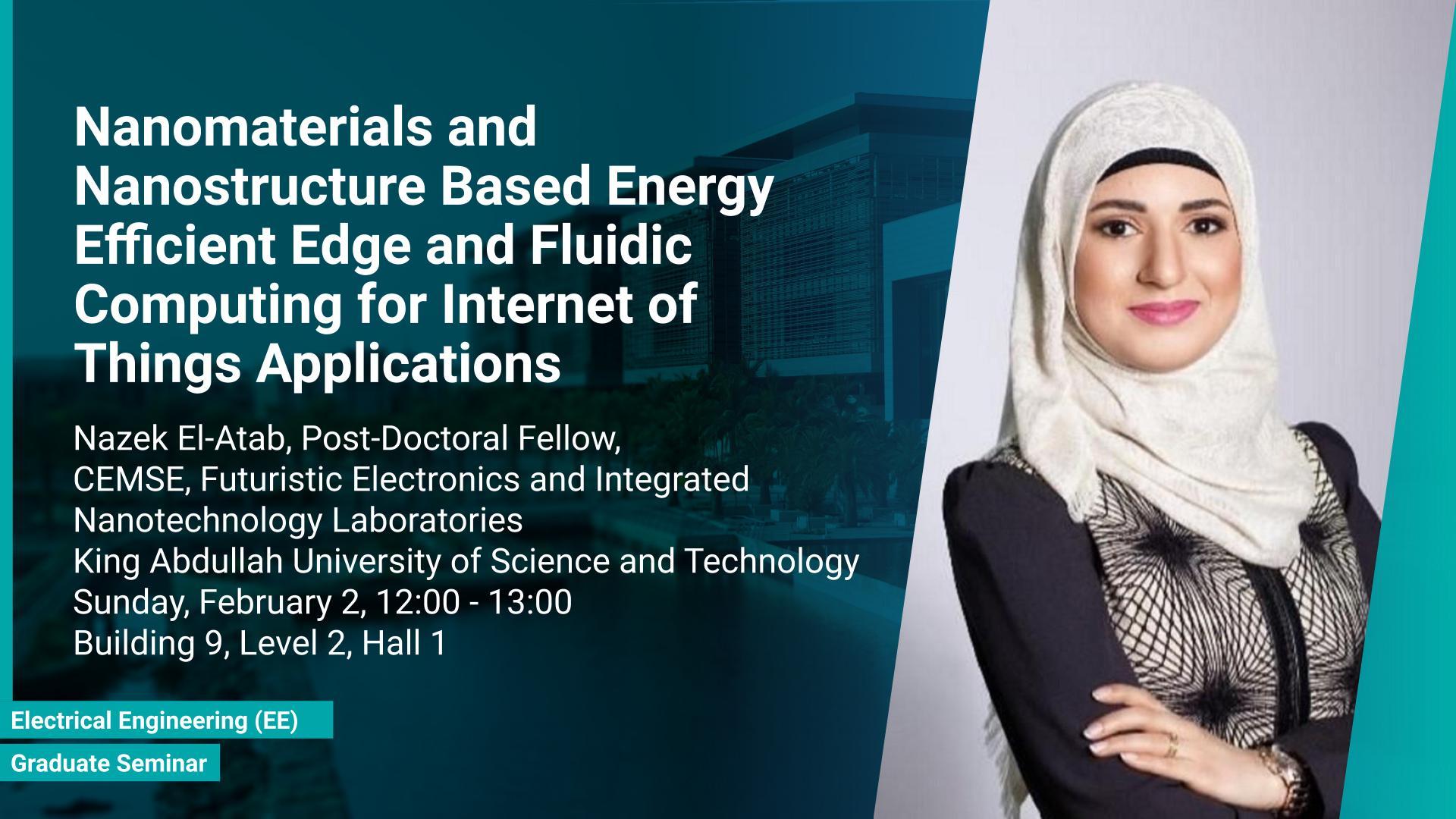Event Start
Event End
Location
Abstract
Since its emergence, Internet-of-Things (IoT) has brought numerous benefits to our lives throughout different fields including healthcare, defense, agriculture, and transportation, where interconnected “intelligent” sensors communicate seamlessly over the internet. As IoT devices become more widespread, massive amounts of data are being generated by the hour and sent to the cloud which leads to several problems in terms of network congestion, slower connection, and increased power consumption. A viable solution to overcome these challenges is edge computing where pre-processing of data takes place at the edge devices. This suggests that future IoT devices need to be smarter such that they can make decisions rather than just send data to the cloud. Moving forward, as we embrace IoT empowered with edge computing, multiple non-trivial questions arise including: is it possible to make current electronic devices smarter and more multifunctional? Which memory types/architectures/materials need to be integrated such that the IoT system cost, size, and power consumption remain largely unaffected? To what extent can the processor (logic devices) on the edge device be involved in data processing? In this talk, I will address these questions with a focus on smart and multifunctional nanomaterial-based memory devices than can sense different physical qualities of the environment (Memsors) in addition to pressure-driven microfluidic logic gates which can process and analyze non-electronic media in an attempt to explore, enable and empower a wider range of IoT applications.
Brief Biography
Dr. Nazek El-Atab is currently a Post-Doctoral research fellow with Professor Muhammad Mustafa Hussain at the MMH labs at KAUST. Her current research focuses on the design and fabrication of futuristic electronics. She received her B.Sc. degree in Computer and Communications Engineering from the Rafik Hariri University, Lebanon, in 2012, her M.Sc. degree in Microsystems Engineering from the Masdar Institute of Science and Technology, Abu Dhabi, UAE, in 2014, and her Ph.D. degree in Interdisciplinary Engineering from the Masdar Institute in 2017. She has received several awards for her research, including 2015 For Women in Science Middle East Fellowship by L’Oreal-UNESCO, Best Paper Award in the Micro/Nano-systems the section at the UAEGSRC 2016 conference, the 2016 IEEE Nanotechnology Student Travel Award in Japan, the 2017 International Rising Talents Award by L’Oreal-UNESCO, the 2018 “Rafik Hariri University” Alumni award, and was portrayed in the 2019 “Remarkable Women in Technology” by UNESCO. She has published over 30 papers in international peer-reviewed scientific journals and conference proceedings, 2 book chapters, 2 books and has 6 U.S. filed patents.
